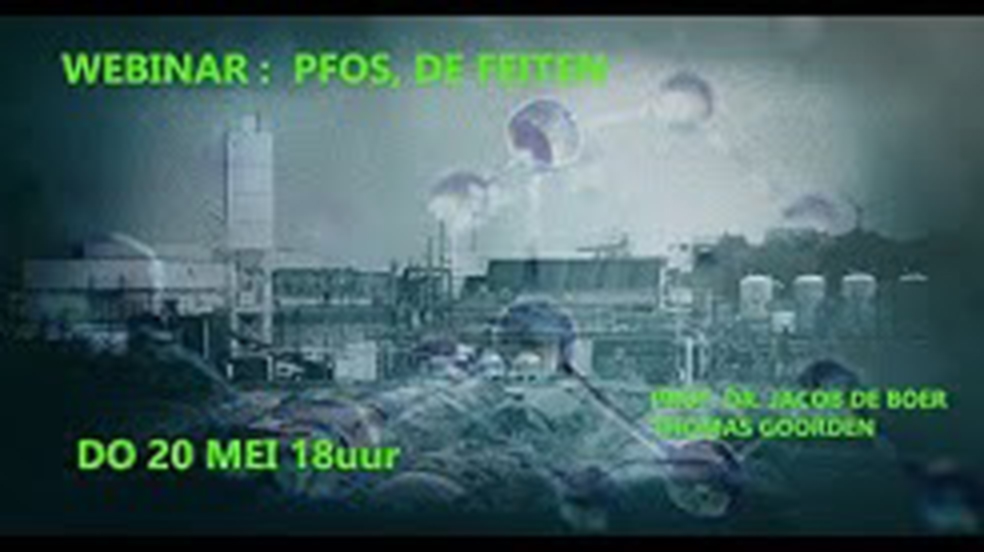15.01.2025 | Grondrecht
The Forever Lobbying Project onthult hoe de industrie het PFAS-verbod ondermijnt
Meer dan een jaar lang heeft The Forever Lobbying Project onderzoek gedaan naar een gecoördineerde lobby- en desinformatiecampagne door de PFAS-industrie en haar bondgenoten. Hun doel? Het afzwakken van het Europese voorstel om ‘forever chemicals’ te verbieden en het afwentelen van de kosten van milieuschade op de samenleving.
Voor het eerst onthult dit grensoverschrijdende en interdisciplinaire onderzoek de verbijsterende kosten van het opruimen van PFAS-vervuiling in Europa als de uitstoot niet wordt beperkt:
- €2 biljoen over een periode van 20 jaar
- €100 miljard per jaar
Als de vervuilers niet betalen, wie dan wel?
PFAS (per- en polyfluoralkylstoffen) worden geproduceerd door een handvol chemische bedrijven en vormen een familie van meer dan 10.000 door de mens gemaakte chemicaliën. Zonder menselijke tussenkomst zijn deze stoffen bijna onverwoestbaar en blijven ze voortbestaan in levende organismen, inclusief mensen. Ze worden in verband gebracht met talloze ernstige ziekten.
Volgens wetenschappers, regelgevers en maatschappelijke organisaties hebben deze “gifstoffen van de eeuw” geleid tot de ergste milieuvervuilingscrisis die de mensheid ooit heeft gekend.
In februari 2023 dienden vijf Europese landen een voorstel in voor een universeel PFAS-verbod onder de EU-chemische regelgeving REACH (Registration, Evaluation, Authorisation and Restriction of Chemicals). Dit verbod zou gelden voor de volledige PFAS-chemische familie, met enkele uitzonderingen totdat er alternatieven beschikbaar zijn.
In reactie daarop zijn honderden bedrijven, verspreid over zo’n 15 sectoren, op grote schaal gaan lobbyen bij Europese beleidsmakers om het voorstel te verzwakken of zelfs volledig te torpederen.
Hoe de industrie twijfel zaait
Met een wetenschappelijke benadering van journalistiek onderzoek naar lobbyisme en desinformatie, publiceerde het Forever Lobbying Project op 14 januari 2025 een diepgaande analyse van de belangrijkste argumenten van de PFAS-lobby. De conclusie? Veel van deze argumenten zijn angstzaaierij, misleidend, vals of zelfs potentieel oneerlijk.
Het onderzoek onthult hoe industrie-lobbyisten gebruik maken van klassieke beïnvloedingstechnieken uit de bedrijfswereld, vergelijkbaar met die welke decennialang werden ingezet om de belangen van de tabaksindustrie, fossiele brandstoffen en chemische pesticiden te verdedigen. Het publieke debat over PFAS is nu vervuild door deze ‘handelaren in twijfel’.
Expert-reviewed journalistiek
Het project bouwt voort op het concept van “expert-reviewed journalism”, dat in 2023 werd geïntroduceerd bij het Forever Pollution Project. Dit keer werkten 18 internationale academici en juristen samen, verspreid over Zürich, Stockholm, Toronto, Rotterdam en andere steden, met expertise in milieuchemie, criminologie en recht.
De journalisten ontwikkelden een methode om de lobby-argumenten te testen in samenwerking met:
- Gary Fooks (University of Bristol, VK)
- Ali Ling (University of St. Thomas School of Engineering, VS)
- Hans Peter Arp (Norwegian University of Science and Technology & Norwegian Geotechnical Institute, Noorwegen)
Grootste PFAS-database ooit openbaar gemaakt
Samen met de EU-lobbywaakhond Corporate Europe Observatory en het PFAS Project Lab verzamelde het team meer dan 14.000 ongepubliceerde documenten over PFAS, waarmee dit de grootste verzameling PFAS-gerelateerde documenten ter wereld is.
Deze unieke collectie is nu openbaar toegankelijk in:
- De Industry Documents Library van de University of California, San Francisco—bekend van de beruchte “Tobacco Papers”
- De Toxic Docs database van Columbia University en de City University of New York
Met deze onthullingen wordt opnieuw duidelijk hoe de chemische industrie alles op alles zet om een verbod op PFAS tegen te houden—met desastreuze gevolgen voor volksgezondheid en milieu.



